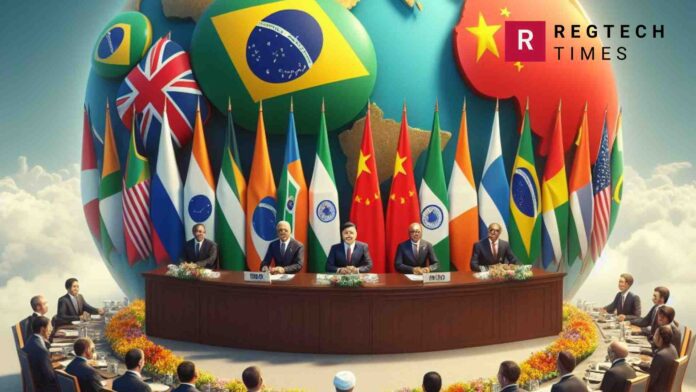Background of BRICS
BRICS is an acronym that refers to an association of five major emerging economies: Brazil, Russia, India, China, and South Africa. These countries are known for their significant influence on regional and global affairs, both politically and economically. The BRICS countries are distinguished by their large populations, vast territories, abundant natural resources, and rapid economic growth.
The group was originally known as “BRIC” before the inclusion of South Africa in 2010, expanding the group and giving it its current name. The BRICS nations cooperate on various issues, including economic development, trade, and political coordination, with the aim of enhancing their collective influence and promoting mutual cooperation. Recently, four new countries joined: Ethiopia, Iran, Egypt, and the United Arab Emirates.
Role of BRICS in Evading Sanctions
This group helps Russia deal with sanctions from Western countries. They do this by increasing trade among themselves, which lessens the impact of the sanctions. Since none of the BRICS members have joined in on the sanctions against Russia, it creates a supportive economic environment for Russia. So, BRICS acts as a shield for Russia against the effects of sanctions imposed by the West.
Russia China Talks
During a trip to China, the Russian foreign minister Lavrov talked about how Russia and China worked together to deal with punishments from Western countries. They used groups like BRICS and the Shanghai Cooperation Organization to help lessen the impact of these penalties, which were imposed because of the conflict in Ukraine.
Lavrov and his Chinese counterpart discussed ways to counter the effects of sanctions during a press conference. Lavrov talked about the economic problems caused by the sanctions and how they plan to solve them within BRICS and the SCO.
Russia has been focusing more on trade with Asia, particularly China, as a response to Western sanctions. Their trade reached a record high of $240 billion last year, exceeding the $200 billion target set by both countries.
At the same time, the US Treasury Secretary Yellen was in Beijing, warning Chinese companies about helping the Russian military, threatening severe consequences. The US, led by President Biden, has been issuing orders for sanctions against foreign institutions that support Russia, even those outside of the US and EU.
Lavrov criticized the Western sanctions, saying they haven’t harmed Russia’s economy but have actually hurt the countries imposing them.


